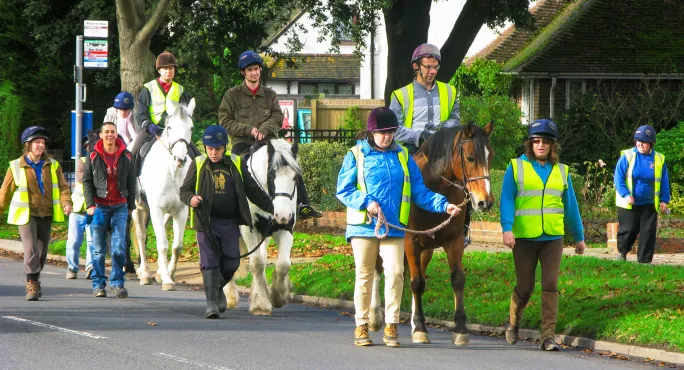Special schools: ‘We used to make magic happen’

Some Scottish teachers say their schools are now so badly resourced for supporting children with complex additional support needs (ASN) that, at times, their focus is shifting from helping these pupils to thrive and achieve their full potential to simply keeping them safe.
New government research says this “perceived reduction in resources” is happening at the same time as “a perceived increase in the complexity of children and young people’s needs” and, while the research uncovered “many examples of good practice”, it also found “examples where circumstances make it challenging for children and young people to thrive”.
A teacher in a local authority special school told the researchers: “Now we are just surviving, we used to make magic happen.”
Another said: “When I started we had horseriding, swimming, our own minibus - it’s all gone.”
The research - which involved 11 schools and 202 participants, including 91 pupils with complex ASN, 18 parents and carers, and 73 school staff - says the reduction in resources was a “cross-cutting” theme and impacted “every area of pupils’ education, including opportunities and achievements”.
Dwindling resources
The research finds that dwindling resources are negatively impacting policy implementation, access to physical resources, such as transport, and specialist facilities and services, including access to educational psychologists, speech and language therapists and occupational therapists.
The research also finds “extremely varied ratios of staff to pupils with complex additional support needs across settings” and that “anxiety and struggle became more prominent in parents’, carers’ and children’s reported experiences as children and young people ascended in their education” - going from nursery, to primary and onto secondary.
The report - published last week and entitled Research into Provision for Pupils with Complex Additional Support Needs in Scotland - says: “Some parents expressed that, when their child moved from nursery to primary school, the support from a range of professionals and external agencies reduced or, in some cases, disappeared.”
The report notes that in P1 the class size limit is 25 - increasing to 30 in P2-3 - but in nursery, for children aged over three, the staffing ratio is one adult to eight children.
Staff-to-pupil ratios
Just as there are significant differences in staffing ratios between preschool and primary, the report also highlights that in some independent and grant-aided special schools, staff-to-pupil ratios are reported as being two support staff per pupil, in addition to teaching staff.
The report says this is “in contrast to some local authority special schools, where there may be one or two support staff and a teacher to eight pupils”.
In settings with less generous staffing ratios, the risk is that staff are unable “to respond to pupils’ needs before a crisis point is reached”.
Reduced staffing levels, the research finds, are also influencing the range of experiences pupils receive, particularly with access to learning away from the classroom.
Curriculum delivery
The researchers found many examples of “creative” and “adaptive” approaches to curriculum delivery. However, “these were not always possible due to staffing constraints and limited access to learning away from the classroom”.
For example, if teachers wanted to teach numeracy through handling money in real-world environments, such as shops, “this was not possible where staffing ratios did not allow for safe off-site learning”.
The report says: “In all settings, a key enabler or barrier was staff resourcing. Sufficient staff ratios supported integration and access to a broad curriculum.”
Still, the report says “many parents” reported that “school staff are often what makes the biggest positive impact on a child or young person’s experience of school”.
The report states: “Participants frequently referred to staff who go ‘above and beyond’, despite barriers such as the school building, resources available, staffing ratios, and complex make-up of their classes.”
It identifies four themes integral to inclusive and tailored approaches for all pupils:
- Resourcing, in particular in relation to staffing.
- The brilliant, committed and supportive nature of staff surrounding pupils.
- Where children are placed for their schooling.
- Robust training for all providers who interact with children with complex ASN.
In 2022, 34 per cent of Scottish pupils were recorded as having ASN, up from 10 per cent in 2010.
The report says it is not possible to disaggregate pupils with complex ASN, but that in 2022 there were 7,821 pupils in local authority special schools, an increase of 1,021 from 6,800 in 2010.
You need a Tes subscription to read this article
Subscribe now to read this article and get other subscriber-only content:
- Unlimited access to all Tes magazine content
- Exclusive subscriber-only stories
- Award-winning email newsletters
Already a subscriber? Log in
You need a subscription to read this article
Subscribe now to read this article and get other subscriber-only content, including:
- Unlimited access to all Tes magazine content
- Exclusive subscriber-only stories
- Award-winning email newsletters



